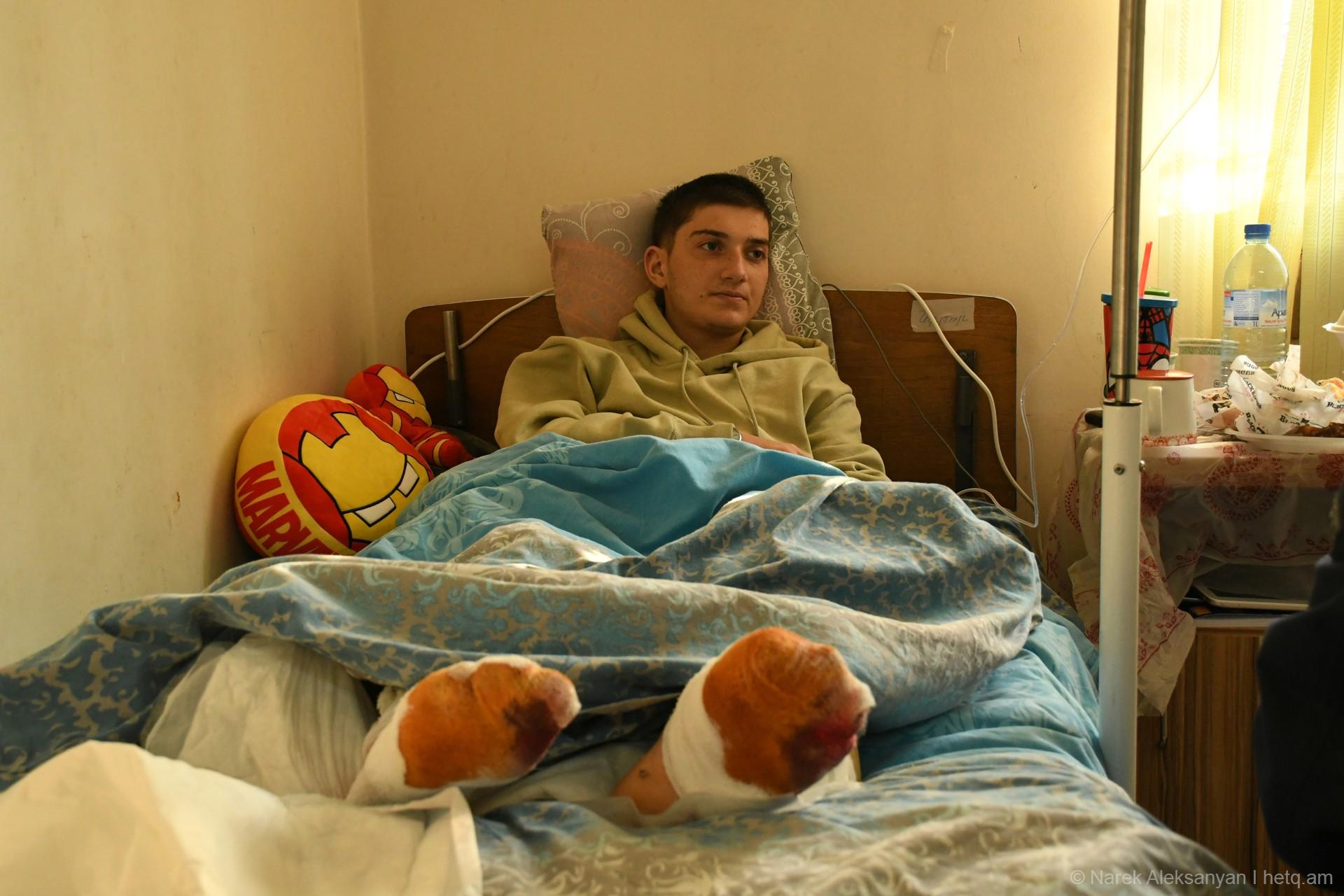
Seventy Days Behind Enemy Lines: Armenian Soldiers Recount Their Harrowing Journey Home
There’s a steady stream of visitors to Ward 19 at Yerevan’s National Burn Center. Well-wishers are told not to stay for more than ten minutes.
Inside the small room are Arman Armaghanyan, Ruslan Tumanyan, Artur Harutyunyan and Arsen Ayvazyan, four of the six Armenian soldiers who were surrounded for seventy days by Azerbaijani troops in Karabakh.
Visitors bring bags of fruit, candy and other goodies for the four surviving soldiers.
The remaining two soldiers, Davit Sahakyan and Nikolay Stepanyan are being treated elsewhere.
The nurse turns on Artur’s drip infusion. He smiles and begins to speak of his ordeal like a movie script, in a clear and vivid fashion. He asks us not to use the place names of the villages because there may be more Armenian soldiers in peril.
The six all served in Jabrayil. They had just been conscripted.
When the war broke out on September 27, all were on the frontline. Artur says that at first it seemed that the war would be over quickly. He was wrong.
One week later, the guys were taken to Hadrut. They stayed for a day on a mountain top. They started to gradually retreat when Azerbaijani troops suddenly attacked.
"About 100 didn’t have time to retreat. We all found ourselves in the same hole. We were under siege. "We were surrounded, the six of us in the mountains and forests for seventy days," says Artur.
During the day, they sheltered on the second floor or attics of houses. They spoke to each other in whispers or sign language, trying to remain silent. They tried not to stay in the same house for long. At night, they mainly looked for food. They were lucky to find fruit preserves. They generally moved at night.
Often, from the top floor, they saw Azerbaijani troops entering homes, destroying everything inside.
"For seventy days we were on the move. We were in the woods, in the houses. It was dangerous to stay in the houses. They kept entering the houses, especially after the war. We took refuge in places where they could not see us, but we could see them," says the 18-year-old soldier.
Arsen recounts an episode he can’t shake. He was hiding in a house with another twenty Armenian soldiers. One of the guys came out and the Azerbaijanis noticed him. They ordered him to be quite and go on the street. It was a two-story house. They started throwing stones. There were dogs. They shot them. They left after a while. It was a strange moment.
“Why did they leave?” I ask.
“Maybe it was more dangerous for them to enter. It is more dangerous to enter from the outside,” Arsen answers.
“Did you have weapons?”
“Yes. We were more afraid of grenades being thrown. We were twenty-one at first, then we split into groups," says Arsen.
He says that it’s possible that more soldiers like him and the others will turn up.
When the war ended, staying in the village became more dangerous. They decided they had to make their way out, to the Armenian lines.
"How did you know the war was over?" I ask Arsen.
“Before the ceasefire, they fired artillery for almost three days. Then, one night, they fired for one and a half hours in the air. After that, the shooting stopped.”
"Why were they firing in the air?" I ask.
"Well, maybe they were marking something," Artur answers.
The guys initially wanted to head towards Armenia, but then realized that it was quite dangerous since the Armenian defensive positions would be strong. They headed towards Iran, intending to cross the Arax River. They cooked some rice, took some jam preserves and left. They walked about 60 km in a straight line. It was already snowing in the mountains. Their feet were frostbitten.
“Did you sing along the way?”
“Yes. We sang and talked. Ruslan sang a lot. It was snowing in the mountains. It was a festive mood. We were singing New Year’s songs because we were far from the Turks.
“Were there any moments that really impressed you?”
“We reached a mountain. We were above the clouds. It seemed you could run on those clouds.”
Their food and water were running out. On December 17 they entered a village on the road, looking for shelter.
Arman oversaw the equipment. When they went from house to house, he looked for batteries for his phone. He checked his phone connection all the way.
"When we entered the village, my legs hurt. It occurred to me to try the phone. I saw that there was a connection. I called my brother, then the Ministry of Defense," says Arman Armaghanyan.
“"Can you imagine? A connection," says Arman. "Our food had run out. Ruslan and Artur were still walking OK and went down to find water. We thought there might be a stream. They said they had found canned food and cakes. We entered a house. Arman checked the phone and said there was a connection."
"Not to brag, but I was convinced that we would make it out," says Arman. He say that when he telephoned his brother the first thing he asked was how to make a compass.
The six servicemen were released from the blockade on December 20 and returned home with the help of Russian peacekeepers, the Red Cross and the Artsakh Ministry of Emergency Situations.
The guys say that they’ve learnt quite a lot about one another over the course of seventy days.
“Will you write about your escapades one day?” I ask them.
“Nikolay is one of us. He teaches Chinese and English. He wants to write a book entitled the Figs Platoon. We loved figs jam we could find in the houses” says Artur.
Artur Harutyunyan is 18 years old. He graduated from Stepanakert Physics and Mathematics School. He was drafted after enrolling at the American University of Armenia’s Department of Engineering. He will continue his studies after military service.
"And then you’ll be able to get a job in the military-industrial sector?”
“I am not in favor of war. I’d very much like to contribute to more peaceful pursuits. I'm still not sure what awaits me, but I have a long time to think.”
“What are your dreams?”
"At this moment, my dream has come true," says Artur and smiles.
Arsen Ayvazyan is 19 years old. He graduated from the State College of Informatics. After military service he will leave for the Czech Republic to study. Arsen says they were thinking about getting home before the New Year. He has no dreams now.
Arman Armaghanyan is 21 years old. He spent his birthday besieged in Artsakh. He’ll return to his job as a printer-designer after being discharged.
“The dreams were quite simple. I always imagined sitting at home with my brother waiting for mom to bring the food. I pictured dolma," says Arman.
Ruslan Tumanyan is 18 years old. Prior to being drafted, he got accepted at Brusov State Linguistic University’s Department of Political Science. He wants to apply to the American University of Armenia, again for political science, after his discharge.
"What is your dream?" I ask Ruslan.
“That we should live normal lives? That we shouldn’t get mixed up in such adventures.”
 Videos
Videos Photos
Photos




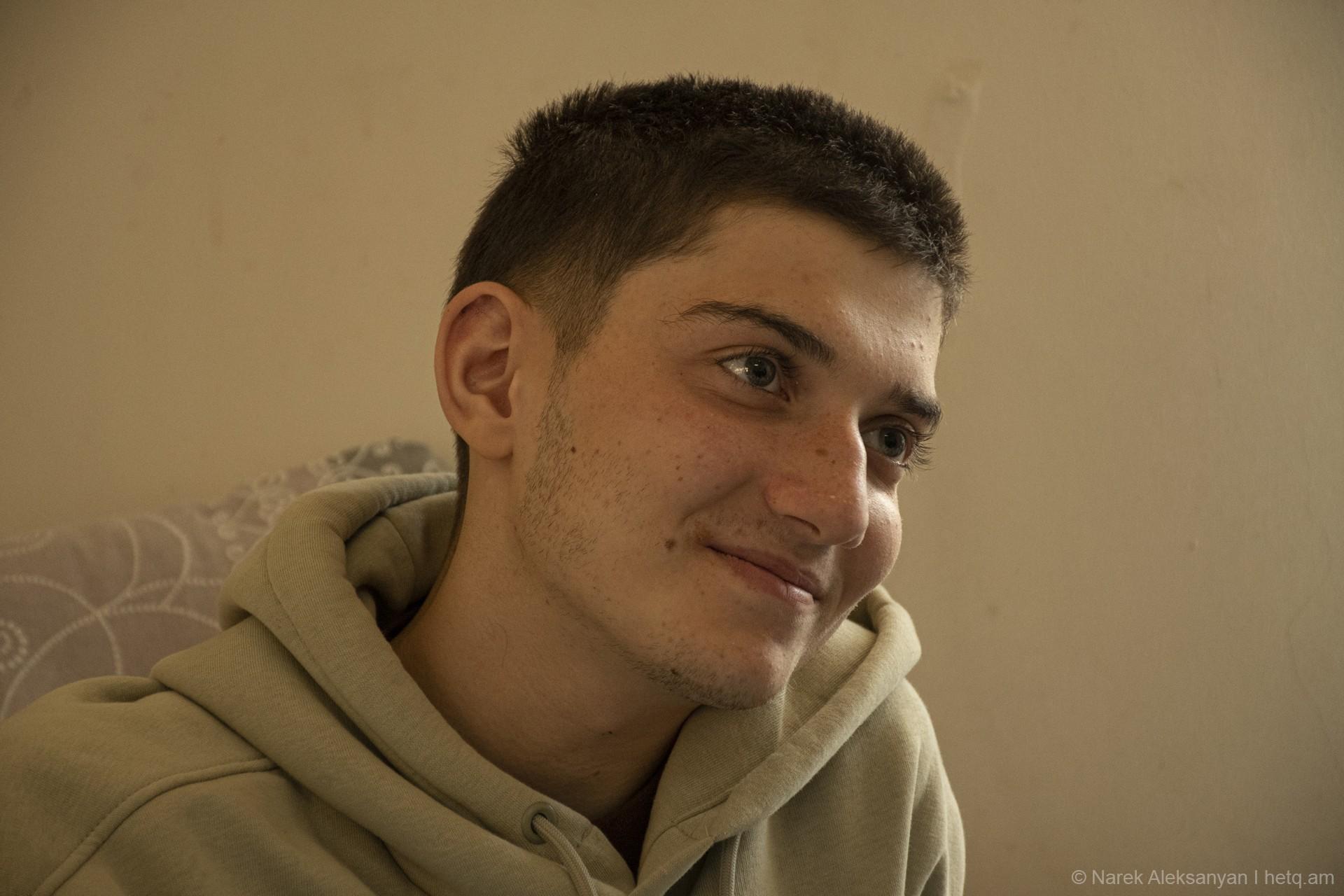
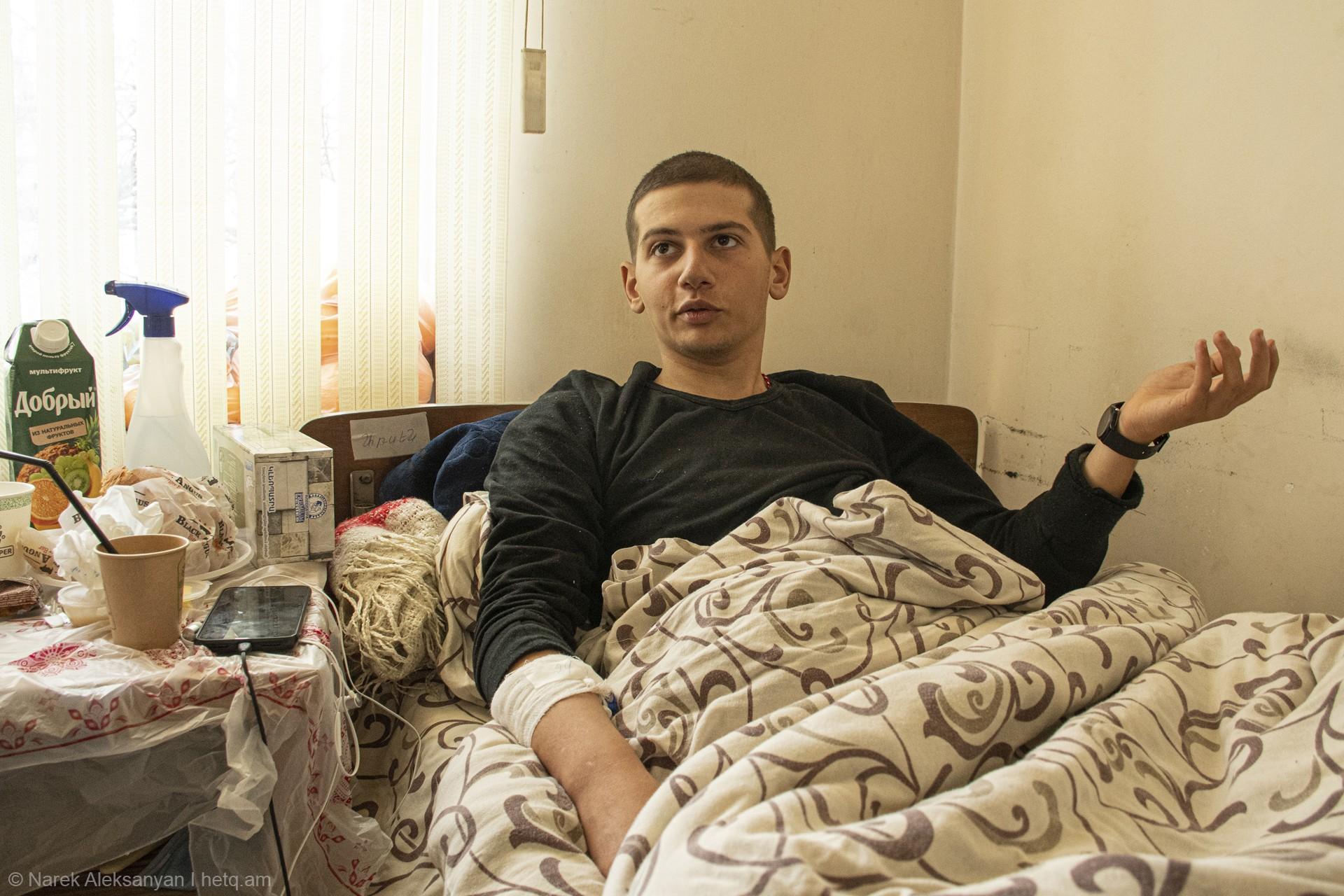
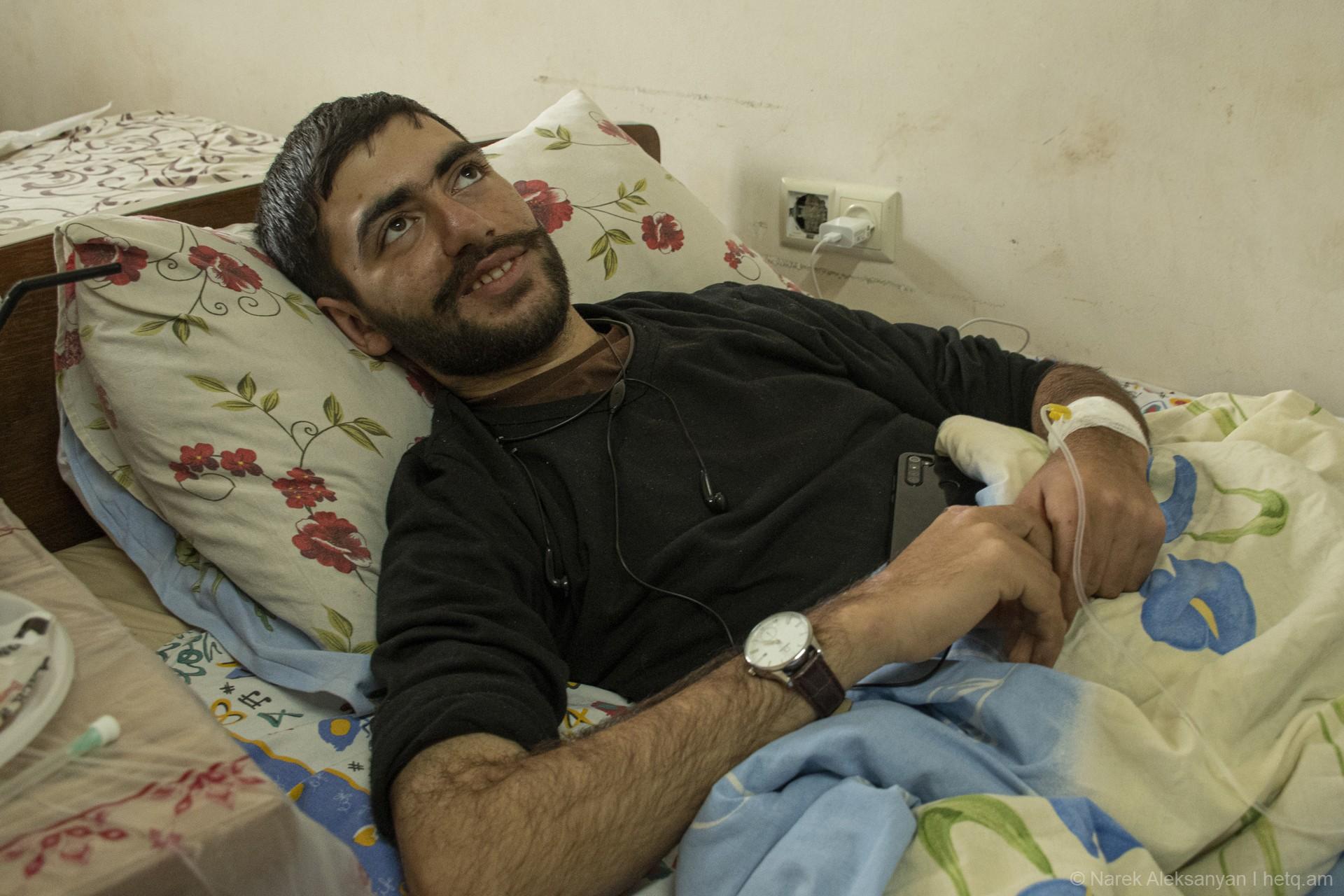
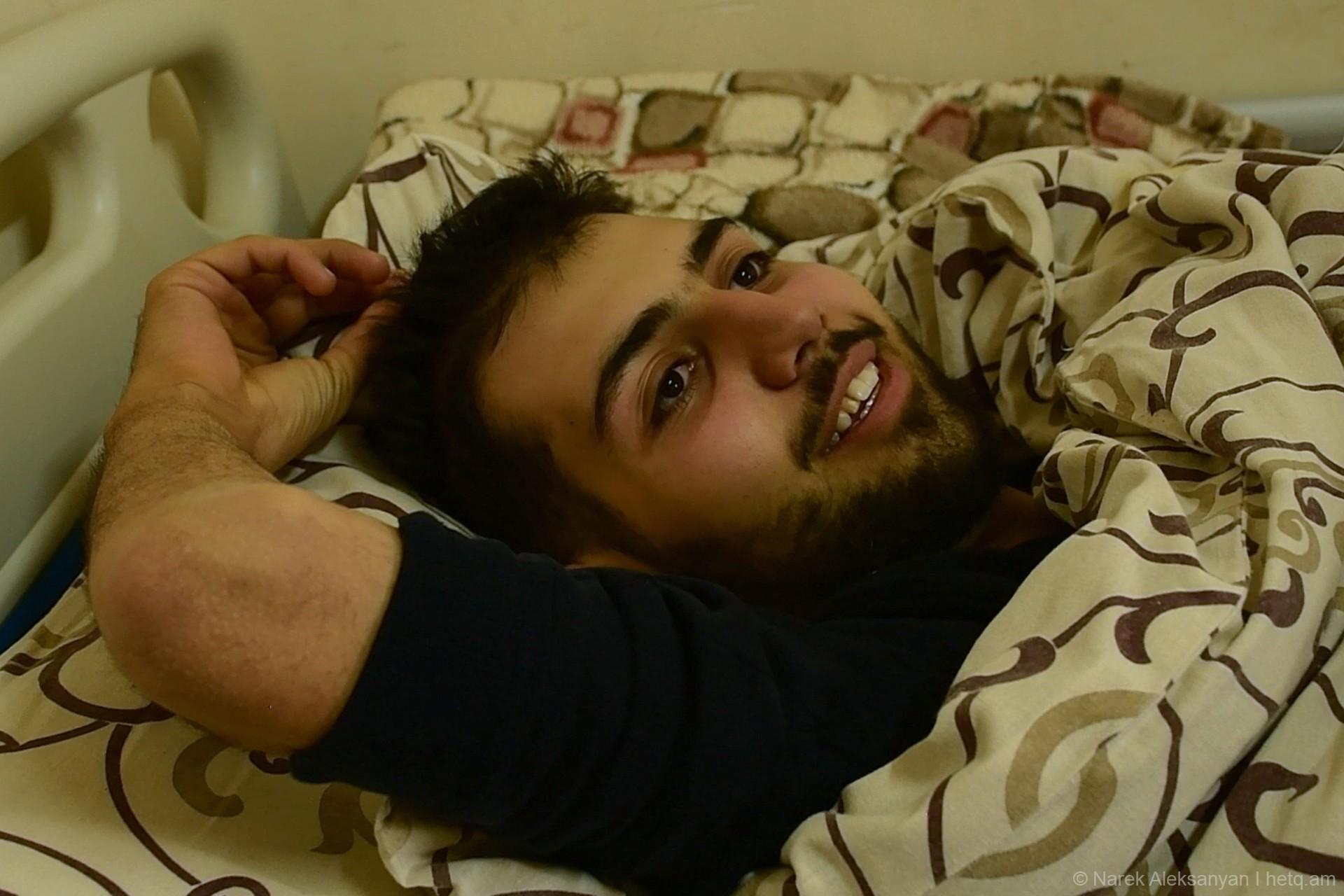
Comments (1)
Write a comment